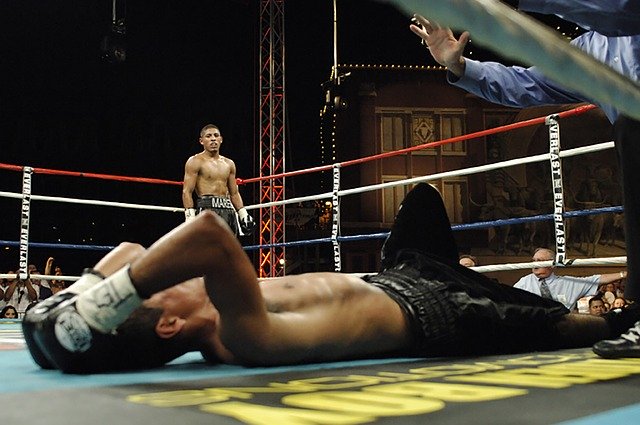Last week we took a look ahead at some of the new Virtual Sports betting games that  are, or could be, on the horizon over the next 12 months or so to add to the extensive selection of games available at a range of top quality betting sites such as 10Bet, Betway or bet365.
are, or could be, on the horizon over the next 12 months or so to add to the extensive selection of games available at a range of top quality betting sites such as 10Bet, Betway or bet365.
However, while it is fun to speculate which sports will be next in line to get their own Virtual version of the game ready for people to bet on, this is only really scratching the surface of what the technology that power Virtual Sports betting could be used for.
So with that in mind, let’s now take a look at how Virtual Sports technology could be used in different ways, both in a betting context and also outside of that. Just how flexible is the technology that powers Virtual Sports and what other uses could it, perhaps with a little adaptation, be put to?
For me, there is one very obvious way in which Virtual Sports tech could be adapted to be used on. betting sites in other ways.
- As a Prediction Tool
Believe it or not, there are already some sites that offer something along these lines,  specifically for horse racing. In Virtual Horseracing, each of the runners in a race is given some form of handicap and then a random element is introduced to decide the outcome of a race.
specifically for horse racing. In Virtual Horseracing, each of the runners in a race is given some form of handicap and then a random element is introduced to decide the outcome of a race.
It does not take a huge amount of adaptation to then utilise this same kind of software to produce the outcomes of simulations to real races, as opposed to entirely made up Virtual races.
Instead of using random handicap systems for each of the runners in a race, the user could input the handicap and form (or indeed any other pertinent data) for each of the runners and the adapted Virtual Software could then use this, together with a smaller random aspect, to simulate the outcome of the race. Punters could then decide whether the simulation produced the result they expected (and thus whether to back that horse), or whether the simulation hasn’t accounted for some other factor and go against what the simulator says.
There are sites that do offer a simple form of this type of prediction tool for horse racing today and I can see this type of technology being rolled out across more sites in the future.
However, there is no reason why the same methods outlined above could not be used on other Virtual Sports technology to allow them to become predictive tools punters could use on a variety of esports. There would have to be significant changes in how the handicapping system of the competitors in the simulation are entered into the game (this would likely have to be flexible, so users could input their own data).
Over time, I could also see these simulators becoming more refined, with users able to input a greater level of detail into the simulation in order for it to produce more accurate results. Could you imagine a football game simulator, where you can enter specific team information and player details for each tea to see how the result will likely turn out depending on the line ups of each team?
Of course, how accurate these simulators would be is open to question. Predictive tools are, generally, not the most accurate as they cannot take into consideration a number of other factors that go towards influencing the result of a race or a sports event.
However, for punters, it would be the potential to use another tool to help them make informed decisions about which bets they would like to make. The key to utilising Virtual Sports technology in this way would be making it as accessible and easy to use as possible, perhaps by using data stored online, so player input is kept to a minimum.
For me this is the most obvious way that Virtual Sports technology could well be utilised in a sports betting context but away from the standard Virtual Sports betting method that we have available nowadays. However, it is not the only way that I can see the potential for the technology that powers Virtual Sports to be used.
Incidentally, for the past two years, ITV Racing has done precisely this for the outcome of the last two Grand National races using a racing simulation based on Virtual Sports and in the first year, the simulation correctly predicted Tiger Roll to win the race.
- Head to Head Betting Tool
One of the most entertaining aspects of sport is the fact that two people can have very  contrasting views on the same sporting team, individual or event. For example, which of the Brazil 1970 or 1982 World Cup teams was the best?
contrasting views on the same sporting team, individual or event. For example, which of the Brazil 1970 or 1982 World Cup teams was the best?
Virtual Sports technology has the ability to utilise this historic data and then simulate the outcome of a match between the two teams. Indeed, you could even add a betting element to the situation.
Rather than simply having a ‘historic’ version of Virtual Football between the two teams, I can see an option where two players with opposing views can bet against each other on how their choice of team will perform. So player A may state that the Brazil 1970 team will win, Player B however may argue that the Brazil 1982 team will win the game.
Software could then match these players together and they could effectively bet against each other on the outcome of the game. The software could then simulate the outcome of the game, with of course, a built-in random element to ensure that the results are not the same each time.
I can see Virtual technology being used to compare athletes, horses, teams and players from different eras against each other. We are already seeing this used in some new Virtual games (a Virtual boxing game sees Mike Tyson taking on fighters from different eras and seeing how he would , in theory, perform against other boxers from other periods in history), so again, this technology is already starting to be used.
I just feel over the next few years, it will start to be used across more sports and in a more innovative and interactive way.
